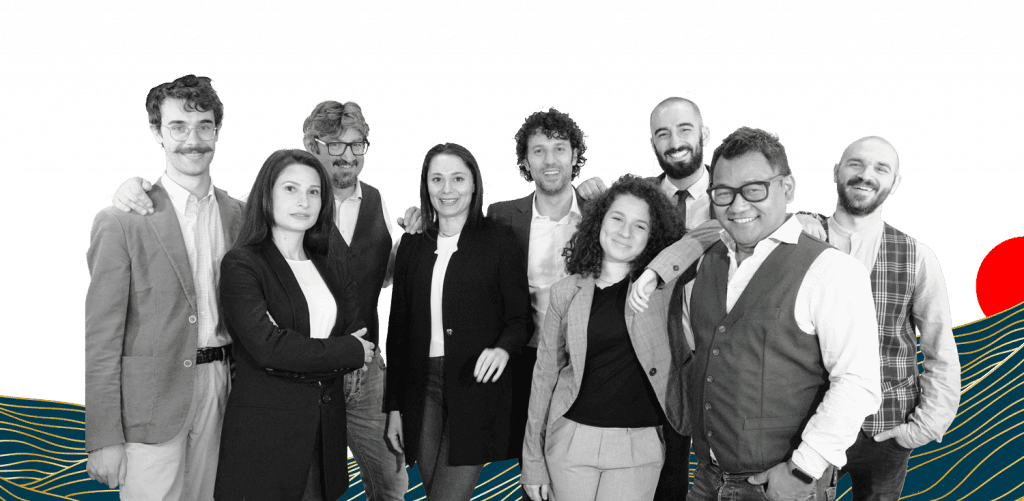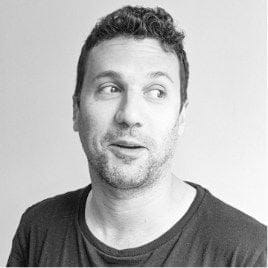The Dual Entity Model is an investment model born in the United States. In this model, a Startup Studio and the Holding that finances it are two separate entities. It is an important model, also because it works.
The first company, sorry: the first Startup Studio to have "imported" this investment model into Italy is called Mamazen, and today it takes another step forward.
After three years, in fact, Mamazen has joined the firm with a holding called IH1. What will this holding do? Basically, what a patron did with an artist in the Renaissance: he will finance a Startup to allow it to reach its goals.
Mamazen, “difficult” money transformed into easy solutions. Indeed: effective.
Mamazen aims to create 15 successful startups in 5 years. Three of these are already on the market, however. IH1 will invest 3 million euros in Mamazen and 7 million euros in the top 10 startups launched from the Studio. A way to create a virtuous competition? A profitable bet? Maybe both, maybe neither. Perhaps, simply the best way to generate ideas to launch on the market.
Leading IH1 are Farhad Alexander Mohammadi, CEO of Mamazen Startup Studio, Alexander Mina, former investor and Chief Brand Officer of Pony Zero, e Alexandre Campra, CEO of Sidinvest Group.
The Holding will allow us to increase productivity, going from the launch of one to three startups a year, streamline the fundraising process and guarantee a perfect alignment of interests with our investors. We build new businesses only with the knowledge that every company we launch will have an impact on society and the surrounding environment.
Farhad Alexander Mohammadi, CEO of Mamazen Startup Studio

Only successful ideas
Today there are around 600 Startup Studios around the world. Their success rate is between 35% and 70%, while that of traditional startups is 10%. Why? The secret is to keep the interests of all the players involved aligned: investors, holding companies and studios do not move with separate objectives and dynamics, but act in synergy to simplify the organization of startups and give them faster access to funding.
A Startup Studio like Mamazen reduces the risks for investors, and allows you to develop only ideas that have successfully passed the first phase. A holding like IH1, for its part, invests only in the best startups.
How does Mamazen work?
The generation and validation process makes Mamazen a true "idea factory". Mamazen creates startups starting from an initial analysis that aims to identify real needs, investment and market trends. From the analysis we move on to the ideation, in which the Studio generates over 100 ideas and measures their interest among possible users. We then move on to a testing phase which aims to narrow the circle to 50, then to 10 and finally to a number from 1 to 3 ideas, to be launched on the market.
Once the idea has been validated, the Firm identifies a co-founder and develops an MVP (minimum viable product) to grow the project up to the first investment round, carried out by the IH1 holding. The financing from the holding company provides the capital necessary to recruit the team and accelerate the growth of the startup, which will then be independent from the firm.
If you are looking for examples of an "idea marathon" developed with this process, here are some. They were born from the Mamazen model Orangogue, a sports search engine that already has over 20 Italian sports clubs. Orangogo has closed three investment rounds for over € 1,5 million in three years and will close the fourth € 1,5 million round in these months. Morsey, a dark kitchen focused on delivering quality lunches to workers, which recently closed a first round for 200 euros and received investment proposals for 500 euros: in just two and a half years it has seen revenue increase by 500 %. On, born in July 2019 to make the sale of a house a unique experience, closed the first investment round in February 2021 by raising 200 thousand euros. It currently has commitments of over 500 thousand euros for the next round.
Italians do It Better

With such a high growth prospect, it is striking that the Startup Studio phenomenon has had such an interesting development in Italy, a country traditionally refractory to "accelerations". It is no coincidence, I believe, that Farhad Alessandro Mohammadi is the author of two white papers of the five existing in the world on the topic of Startup Studios. I asked him a couple of questions: here's how he answered me.
Farhad Alessandro Mohammadi, Mamazen
How do you see the future of Italian startups?
I see that our ecosystem, albeit slowly, is growing. Capital is gradually moving to alternative assets and in Italy too we are moving in this direction. I believe that Italy is an exceptional hotbed of talent and that, now more than ever, we need Startuppers with an open mind. To win this challenge, however, we must make a change of pace both in terms of investments and ambition (startuppers must aim to build companies with broad horizons).
Will the Startup Studio model become prevalent or are we condemned to read a thousand stories of valid startuppers who 'if they had been born elsewhere they would have made a fortune'?
The bar is certainly being raised. Today's founders must have greater preparation than those of the first wave. The level is rising and, as a Japanese saying goes, “When the water rises, the boat rises”. I believe that from now on, and increasingly in the near future, a structured approach will pay off. The Startup Studio is certainly the emblem of the structured approach and, especially in Italy, where a Startup is forced to face more difficult challenges than in other countries, the Startup Studio is more effective because it allows access to method, skills, capital and networks for a fast climb. So no, we will no longer see many good startuppers running away, in fact I see a future made up of returns. Many friends have returned from London to Italy and are now bringing value to our country.
ᐧ


